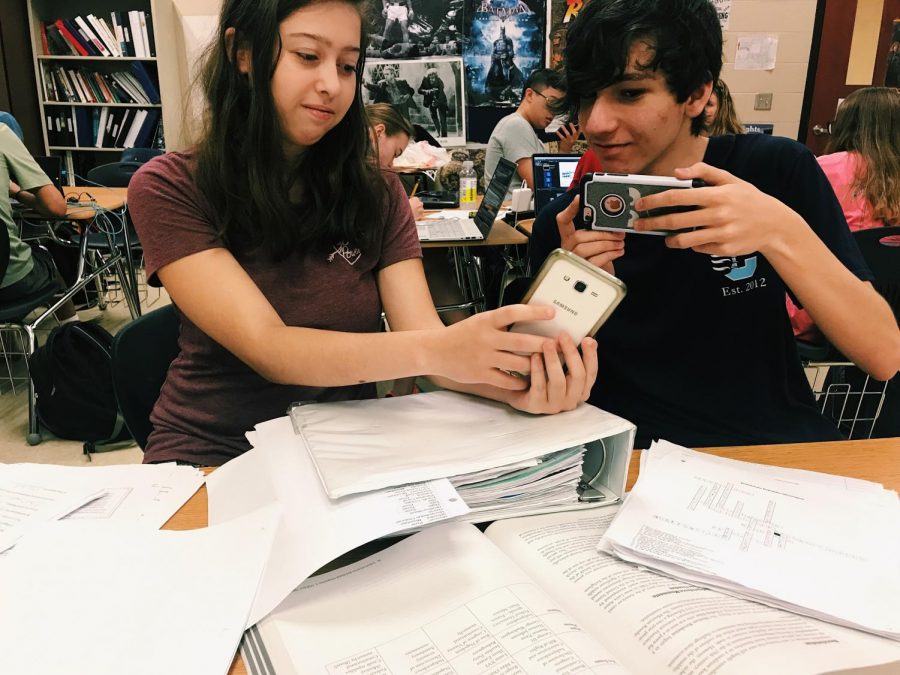The Struggles of Time Management for Students of the 21st Century

Time management is one of the most important skills for a student to survive the harsh realities and stress caused by high school.
Students must be able to learn how to manage the hefty load of homework, projects and essays that come from demanding and rigorous courses.
Procrastination and bombardment of distractions, such as video games and social media, have affected students nationwide.
Several students said the area they struggle most with in time management is reading and essays. They said they usually put it off because it seems so exceedingly long compared to the time they have, so they would rather not do it.
Tim Pychyl and Fuschia Sirois, professors of psychology at Carleton and Sheffield universities, conducted a study which found students tend to push away tasks to avoid the negative associations and disinterest that come with performing the task such as boredom, anxiety, self-doubt and frustration.
Language arts teacher Jon Karschnik said overscheduling is a common problem students face today as they feel pressure to take more rigorous, time-consuming AP courses.
“It was night and day compared to what high school was when I went to high school. We didn’t even have AP courses where I was,” said Karschnik.
“They have a lot more content, lot more to study, lot more to do,” said Karschnik.
Several students said they primarily procrastinate for two reasons: technology and just pure laziness.
“I don’t want to do work right when I get home. You get distracted by being on your phone and you know Netflix and all of that, and so I just end up doing everything else, which I could do later on at night, before I do my homework,” said sophomore Ashna Gupta.
Gupta said she started to procrastinate in ninth grade because there were a lot more classes and more homework. She said she didn’t want to do it and would “just wing everything.”
While there are different types of procrastination, the most prominent is irrational procrastination. Irrational procrastination is the intentional delay of action despite knowing that one will be worse off later on.
Causes of irrational procrastination include technological addictions such as social media. Students constantly check their social media and cell phones for entertainment purposes, as well as notifications and messages from friends.
In the present day, the heavier reliance on technology creates more accessible distractions right in the palm of your hand.
Because technology is so prevalent in this generation, high school life is not just purposeful for academics, but also “keeping up your social life and maintaining a presence throughout school and social media,” said Gupta.
This new aspect of technology has veered many students off to procrastinate and put activities to the side until the last minute.
Sophomore Nikki Tanguay says she is one of the few people she knows who has good time management skills.
Tanguay plays varsity softball and junior varsity lacrosse, and said she often comes home exhausted due to sports games and practices.
However, Tanguay said, “my time management skills have gotten better because I use the time that I have wisely, so that I am able to go to bed at a decent time instead of staying up late to do my work because I procrastinated.”
But Tanguay said she uses the time she has to get work done because she also values her time to get things done just as much as she loves sports, and has a positive correlation attached to work rather than a negative one.
Karschnik said students need to learn how to prioritize their work and learn what is most important whether that be through a to-do list or an agenda.
Tanguay said she agreed with this, but also said “students just need to get off their phones!”
This content was originally published here.
Leave a Comment